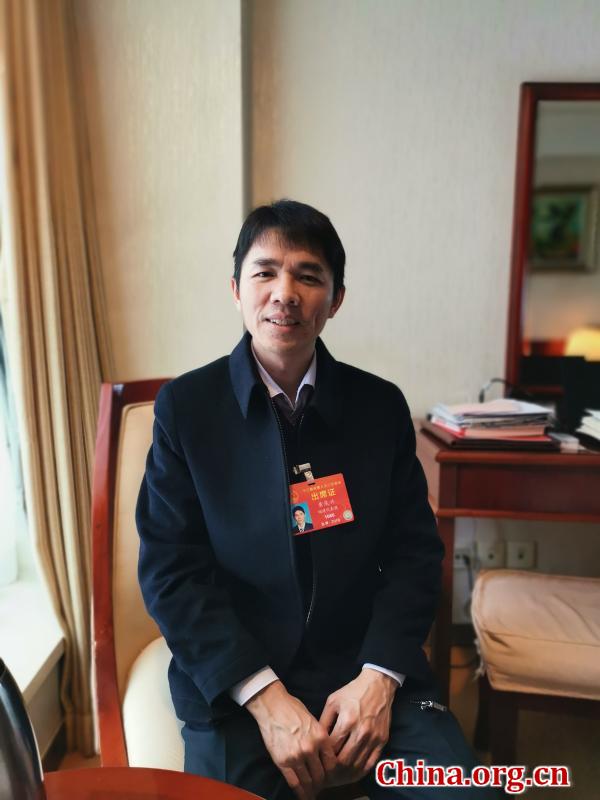Draft foreign investment law reflects changes in China's foreign trade
- By Zhang Liying
 0 Comment(s)
0 Comment(s) Print
Print E-mail China.org.cn, March 12, 2019
E-mail China.org.cn, March 12, 2019
A draft foreign investment law submitted to the second session of the 13th National People's Congress (NPC) for deliberation reflects shifts in China's foreign trade development, said NPC deputy Huang Maoxing.

Once adopted, it will become the fundamental law for China's foreign investment, according to the explanation delivered by Wang Chen, vice chairman of the NPC Standing Committee, to deputies attending an NPC plenary session.
Huang, who is also the dean of the School of Economics at Fujian Normal University, said trade in services will play an increasingly important role in China's foreign trade development, and the country is acting to further open up its financial services industry.
It is also attaching greater importance to quality rather than the quantity of foreign investment, as its economy has been transitioning from a phase of rapid growth to that of high-quality development, he said.
Huang said that all such shifts required adjustments, as the three previous separate laws on Chinese-foreign equity joint ventures, non-equity joint ventures (or contractual joint ventures) and wholly foreign-owned enterprises, could hardly keep pace with the changing economic situation.
He explained that increasing the quality of China’s foreign investment involves four main aspects, namely bringing in more resources conducive to the ongoing industrial transformation and upgrading, leveraging the role of foreign investment in forcing various domestic service sectors to enhance their competitiveness in the global market, attracting more high-caliber talent well-versed in global rules and multinational management, improving the balance in promoting foreign investment with full consideration of industrial development in different regions.
The draft law, which responds to some common concerns among foreign investors, would foster an environment more favorable to doing business and further boost the confidence of foreign enterprises to invest in China, Huang stressed.
According to an explanatory media document, the draft includes many stipulations ensuring domestic and foreign enterprises are subject to a unified set of rules and can compete on a level playing field.
Huang said that amid the rising tide of protectionism and anti-globalization in many parts of the world, China's drafting of the foreign investment law demonstrates its resolve to open wider to the outside world and uphold economic globalization.
The draft law will be voted on by deputies at the closing meeting of the second session of the 13th NPC on March 15.





